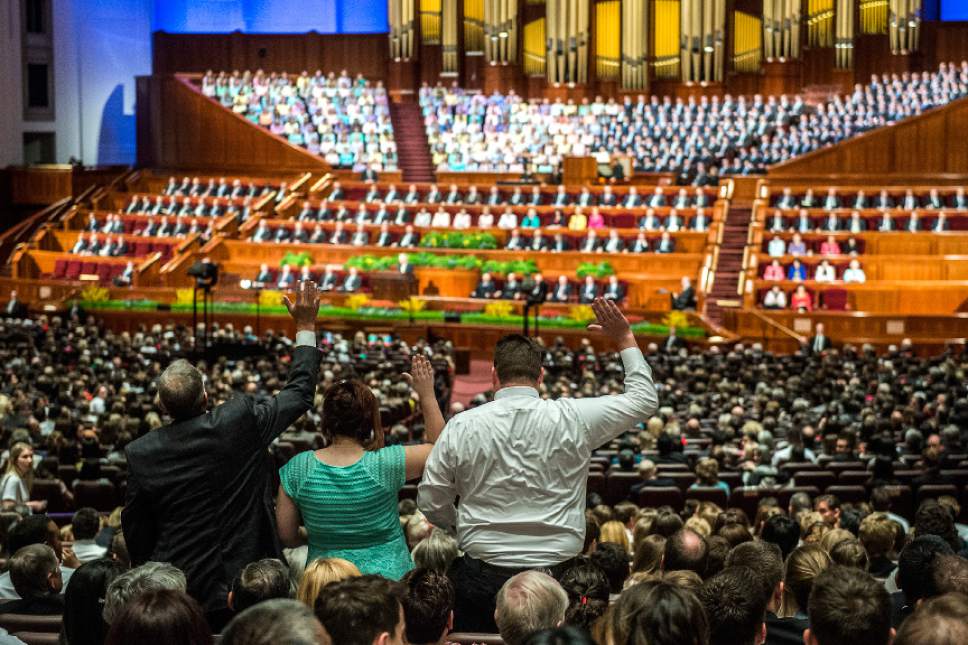This is an archived article that was published on sltrib.com in 2017, and information in the article may be outdated. It is provided only for personal research purposes and may not be reprinted.
Two years ago, during a session of LDS General Conference, several voices of dissent were heard from the Conference Center audience. When it came time to sustain the prophet and the Quorum of the Twelve Apostles, they stood up and shouted, "Opposed!"
Fat lot of good it did them. Being that the tally was about seven against 20,000, not a single apostle in the lineup changed.
None of the opposing voices belonged to me. I bring this up because there have been times when I have voted not to sustain other members. What's the point of leaders asking whether I'm opposed to someone if I don't periodically exercise the right to be so?
For those unfamiliar with "voting" in The Church of Jesus Christ of Latter-day Saints, it's not a real election. If it were, there would be a choice of candidates rather than just the one person asked to stand. There never is. More's the pity.
"All those who sustain Sister Mooser in this new calling, please manifest it by the uplifted hand. OK, now all those who would rather sustain Sister Mutz instead."
This seems more logical. Shouldn't a person who wanted the calling bad enough to campaign for it be the one who got it rather than someone else who just said "yes" because Mormon policy dictates we're not supposed to say no to "the Lord?"
On the other hand, it's right to be suspicious of anyone who actually aspires to a position of religious responsibility. Frankly, there's not enough of that kind of suspicion in secular politics.
I try to be reverent in my spiritual opposition. No jumping around or yelling. No whistles, bullhorns or fireworks. What's the point in chasing off the Holy Spirit or scaring people? I just quietly raise my hand when they call for a sign from those with a different point of view.
If asked from the pulpit why I'm opposed, I'll tell them. They've sometimes been disconcerted by what I have to say, but I've never been asked to leave. A few leaders have approached me after the meetings and asked the nature of my opposition. It's always couched in a tone of genuine concern, but the look on their faces clearly says, "What the hell is the matter with you?"
My opposition has been publicly manifested in one stake conference, two ward conferences and a bunch of times during regular sacrament meetings. I've done it so often that my bishop is ready for me. It can still catch the occasional stake visitor off guard though.
For example, when Roger, a neighbor, was called to serve as the elders quorum president in my ward, I raised my hand in opposition.
High councilman: "Those opposed may do so. ... Wait, you're opposed, Robert?"
Me: "You bet. I've had that calling before. It's a horrible job. I'm just trying to help out a friend."
Similarly, when another neighbor, Sheldon, was asked to serve in the ward nursery with me, I said no. Since he had just been released from the bishopric, I thought it possible that Sheldon might be suffering from post-traumatic stress disorder. I didn't want him anywhere near my Nursery Fight Club.
It seems I overplayed my hand. This time I didn't even get my hand all the way up before Bishop Watson said, "So noted, Robert. Now please be quiet."
Rats. If there's anything I hate, it's becoming as religiously predictable as everyone else.
Robert Kirby can be reached at rkirby@sltrib.com or facebook.com/stillnotpatbagley.



